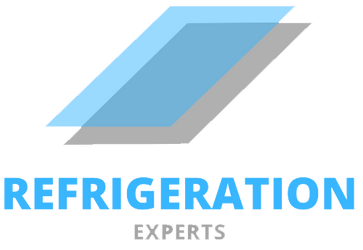
Maximising Energy Efficiency in Your Commercial Refrigeration System
As a business owner utilising commercial refrigeration systems, you're undoubtedly aware of their significant impact on your overall energy consumption and operational costs. According to the Australian Government, refrigeration accounts for around 50% of the energy consumption within the food service sector, making it a primary target for cost reductions and improved environmental outcomes. By optimising the energy efficiency of your commercial refrigeration system, you can significantly lower costs, reduce your carbon footprint, and contribute to a more sustainable future. In this detailed guide, we'll discuss various strategies to help you achieve this goal and enhance the performance of your refrigeration equipment.
From small retail shops to large-scale industrial facilities, commercial refrigeration is a critical component in many businesses across Australia. However, it's often noticed that these systems are not operating to their full potential due to factors such as improper installation, lack of maintenance, or outdated equipment. This suboptimal performance leads to increased energy bills, decreased equipment lifespan, and in some cases a negative impact on the environment.
Selecting Energy-Efficient Equipment for Your Commercial Refrigeration System
One of the initial steps in ensuring the energy efficiency of your refrigeration system is selecting the most suitable and efficient equipment for your business. While investing in energy-efficient appliances may come at a higher upfront cost, the long-term savings in energy consumption and maintenance expenses can more than makeup for the initial investment. When considering new equipment, look for the following features:
- Energy Rating: Opt for appliances with high energy-efficiency ratings as these units typically have superior insulation, temperature control, and cooling systems. In Australia, the government-endorsed Energy Rating Label (ERL) on retail appliances is an excellent resource to gauge an appliance's energy efficiency.
- Size and Load: Ensure that refrigeration units have enough capacity and airflow to accommodate your products, but also avoid choosing a unit that is too large for your needs. Oversized equipment can result in increased energy consumption and unnecessary expenditure.
- Advanced Cooling Technologies: Some modern commercial refrigeration systems employ advanced technologies to maximise energy efficiency, such as variable speed compressor controls or evaporative condensers.
Optimising Refrigeration Unit Placement and Operation
The location and operation of your commercial refrigeration equipment play a significant role in determining their energy efficiency. Implement the following strategies to make the best use of your space and optimise your unit's performance:
- Proper Ventilation: To maintain optimal energy efficiency, ensure that your refrigeration units have sufficient ventilation. Keep units away from heat-generating equipment such as ovens or direct sunlight to minimise the workload on the cooling system.
- Strategic Shelving: Arrange items within your refrigerator in a manner that allows for optimal airflow and temperature distribution. Avoid overcrowding shelves or blocking air vents, as this can negatively impact cooling efficiency and lead to uneven temperatures.
- Loading Efficiency: Develop a plan for loading and unloading your refrigeration units that streamlines the process, minimises door-opening time, and reduces the strain on cooling mechanisms.
Implementing Regular Maintenance and Monitoring Practices
Proper maintenance is crucial to prolonging the lifespan of your equipment and ensuring peak performance. Establish a regular maintenance program that includes the following:
- Cleaning Condenser and Evaporator Coils: Dirty coils can decrease your unit's cooling efficiency, leading to higher energy consumption. Clean these components thoroughly at least once every three months.
- Inspecting Door Gaskets and Seals: Damaged door gaskets and seals can allow cold air to escape from your refrigeration unit, increasing energy usage. Routinely inspect these components and replace them when necessary.
- Monitoring Temperature and Humidity Levels: Continuously monitor the temperature and humidity levels within your refrigeration units. Regularly recalibrate temperature controls and adjust humidity settings according to your specific requirements.
- Enlisting Professional Assistance: Engage the services of a professional technician to conduct periodic maintenance checks and system assessments. These experts can identify potential issues, recommend energy-saving strategies, and ensure compliance with any relevant regulations.
Upgrading Your Commercial Refrigeration System for Future Sustainability
Investing in system upgrades or retrofits can significantly improve the energy efficiency of your commercial refrigeration infrastructure. Consider the following options:
- Automated Energy Management Systems: These systems can monitor and control various aspects of your refrigeration system, including temperature, humidity, and defrost cycles, ensuring optimal energy efficiency.
- High-Efficiency Fan Motors: Upgrading to ECM (electronically commutated motor) fan motors can considerably reduce energy consumption, as they use modern technologies and work more efficiently than traditional motors.
- LED Lighting: Installing LED lighting in your refrigeration units is a simple, cost-effective upgrade that can substantially decrease energy consumption and improve visibility for staff and customers alike.
Take Control of Your Energy Efficiency and Cut Costs Today
Improving the energy efficiency of your commercial refrigeration system is not only beneficial for cutting costs but also crucial for ensuring the sustainability and success of your Australian business. By selecting the appropriate equipment, optimising unit placement and operation, and following a proactive maintenance program, you can truly take control of your energy consumption and create a more environmentally friendly business.
If you're looking for expert advice and assistance in enhancing the energy efficiency of your commercial refrigeration, get in touch with our team at Refrigeration Experts today. We're more than happy to help you find the best solutions to maximise your savings and ensure long-term success.
